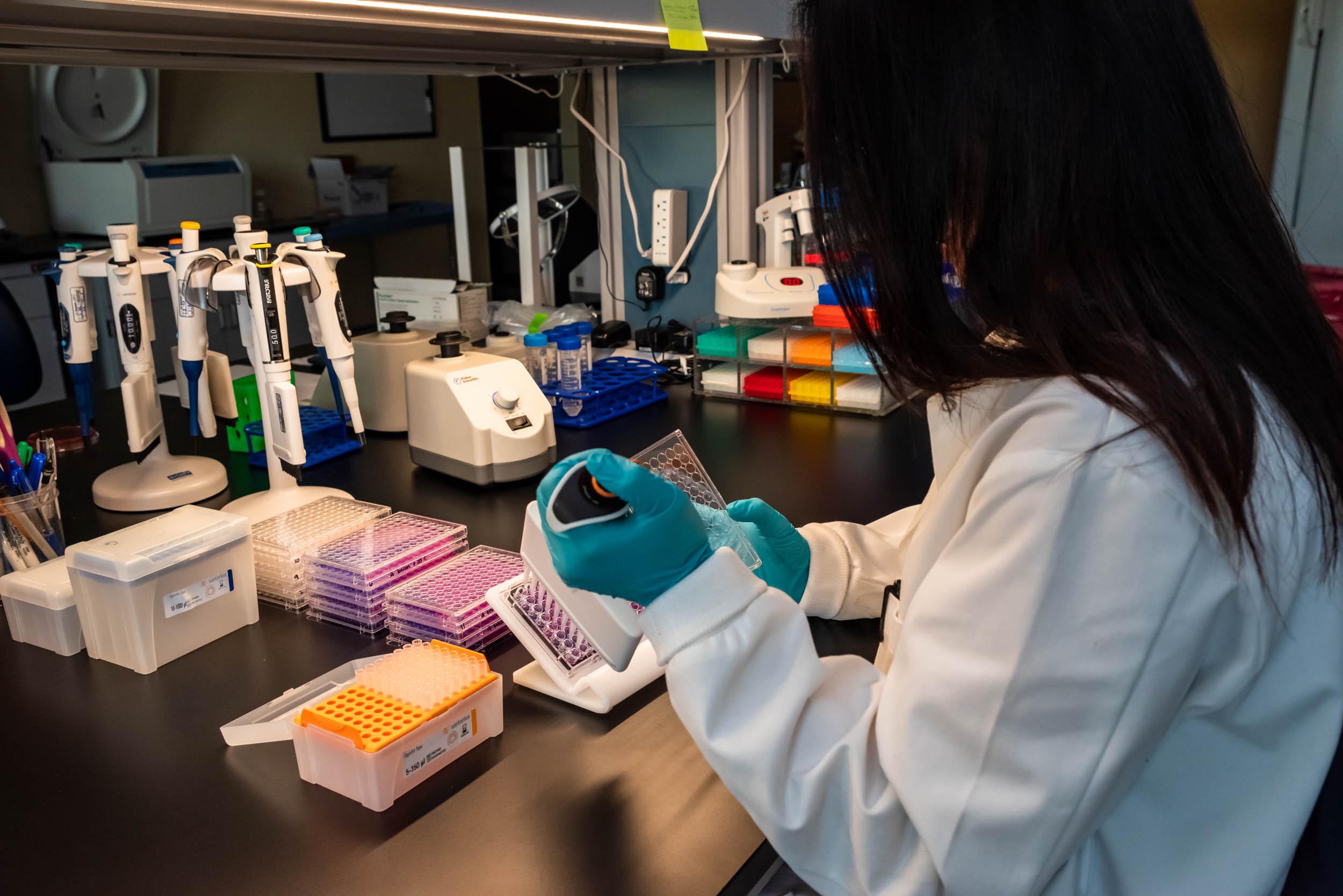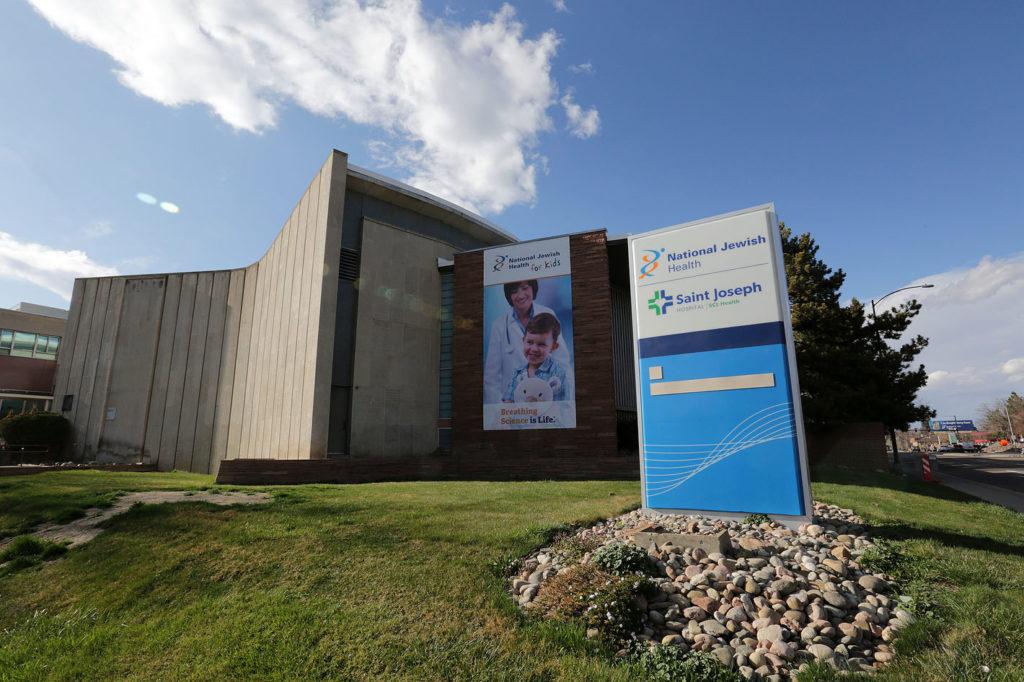
Updated at 8:40 a.m. on Tuesday, Feb. 11, 2025.
A federal judge temporarily blocked the Trump administration's proposed cuts to medical research late Monday after 22 states sued to stop them.
Colorado Attorney General Phil Weiser announced Monday that his office joined 21 other attorneys general in a lawsuit challenging the Trump administration's funding cuts.
Weiser's office said it is suing the U.S. Department of Health and Human Services and the National Institutes of Health "for unlawfully cutting funds that support groundbreaking medical and public health research at universities and research institutions across the country."
The suit also includes attorneys general from Arizona, California, Connecticut, Delaware, Hawaii, Illinois, Maine, Maryland, Massachusetts, Michigan, Minnesota, Nevada, New Jersey, New Mexico, New York, North Carolina, Oregon, Rhode Island, Vermont, Washington and Wisconsin.
The federal judge set a hearing for later this month to further consider the changes.
Our original story continues below.
Funding caps announced late Friday by the Trump administration could cripple medical research and innovation in Colorado, potentially costing the state a vast sum of money and putting thousands of jobs at risk.
The National Institutes of Health said the cuts to grants to research institutions would limit indirect funding of research projects to 15 percent.
Colorado universities, health systems and small companies relying on the funds described the money as foundational “to be able to do world-class research in the United States,” as one executive put it.
The financial hit promises to approach a hundred million dollars or more statewide, jeopardizing health research and treatments.
“When we look system-wide, we think the impact based upon last year's numbers would be just over $85 million per year for the CU system with the largest part of that impacting CU Anschutz, which is our medical campus," said University of Colorado president Todd Saliman, in an interview late Sunday. “These dollars support the physical and operational backbone of scientific discovery at CU. They help us maintain labs and secure data and cover the daily operations of critical research infrastructure.”
That would undoubtedly be felt acutely by patients, he said.
“It would have a negative impact on our work to help people feel better and to actually help people actually get better. People who are struggling and suffering from things like cancer, Alzheimer's, brain injuries, mental illness and heart disease,” Saliman said.
The changes, he said, could usher in a variety of measures: potential hiring freezes; furloughs or layoffs of staff; budget cuts because CU uses some of these funds to cover its debt service obligations; planned investments in institutional financial aid; compensation increases for faculty and staff; and other programmatic offerings.
He said CU would be informing the broader community of the potential impact on people’s health.
“It's important that people know that something like this would have a direct impact on our ability to help people feel better and to help people actually get better,” Saliman said.

Nationally, of $35 billion dollars spent on NIH grants in 2023, about $9 billion went to indirect costs targeted, which cover things like equipment, operations, maintenance, accounting and personnel, according to NBC, citing the announcement by NIH’s Office of Policy for Extramural Research Administration.
The change, if it stands, promises to cripple medical research, dramatically hampering both basic research and breakthrough advances that promise to help patients with a broad array of conditions.
“Research and innovation are essential to providing advanced, life-saving care both today and into the future,” said Dan Weaver, UCHealth’s vice president of communications.
UCHealth provides access to more than 1,700 clinical trials and 1,200 active research projects in our state, he said in an email, in partnership with the University of Colorado Anschutz Medical Campus, Colorado State University and other research leaders.
“The exact impacts of NIH reductions are being evaluated, but we are concerned that cutting off this essential funding will reduce the availability of clinical trials, slow scientific progress, delay access to innovative treatments and lead to loss of jobs in Colorado. Any reduction or delay in medical innovation could negatively impact patient outcomes,” Weaver said.
News of the change rippled across Colorado’s health and research sector over the weekend, with leaders from the state’s biggest health institutions to small companies scrambling to examine language on contracts and grants, alerting employees and reaching out to Colorado’s congressional delegation and state leaders.
The speed and scope of the announcement left them rattled and surprised.
“Just the thought that you could put out an edict to cut the federal funding portion of research from, say, an average of 50 or 60 percent down to 15 percent and implement that on Monday, not only taking into account how awful and thoughtless it is, it's just extremely difficult,” said Dr. Michael Salem, the president and CEO of National Jewish Health.
The impact could be profound for an institution like Denver-based NJH, which is considered one of the country’s preeminent respiratory hospitals. It both conducts medical research and treats patients with respiratory, cardiac, immune and related disorders.
“So if they would reduce us to a flat rate of 15 percent, it'll require us to raise an additional $13 million a year to maintain our cutting edge research,” Salem said.
More likely, it would be forced to cut research programs. He said of its 1,800 employees, about 440 of them spend more than three-quarters of their work hours conducting research. That doesn’t include many others who might spend 25 or 50 percent of their time in research.
“So the decision to cap those costs will have ramifications well beyond people's individual research programs. It'll impact clinical care and education,” Salem said.
Researchers in Colorado are using words like “catastrophic” and “bombshell” to describe the potential impact of the 15 percent cap.
The NIH, the country’s medical research agency, is charged with “making important discoveries that improve health and save lives.”
The move puts a ceiling on critical funding for medical research at a variety of sites nationally, like universities, research hospitals, medical schools, and other scientific institutions.
The 15 percent cap to grants is far below what many institutions receive for overhead expenses like paying support staff and maintaining buildings and equipment.
Those funds for indirect costs can make up a big share of institutions' overall funding, more than half for some big research universities, according to NPR.
The NIH said the new policy is more like what private foundations that fund research pay.
“Eliminating these dollars makes no sense. Colorado is the home to world-class research and higher education institutions who drive life-saving innovation, attract jobs and spawn businesses,” said Ally Sullivan, a spokesperson for Gov. Jared Polis, in an email. “Taking away critical research funding undercuts innovation, stifles economic growth and makes America less competitive. We will review these actions and how they could hurt Coloradans, and our state's exceptional research in patient care, infectious diseases, and biomedicine.”
Total federal NIH research funding in Colorado tops half a billion dollars a year
Funding to Colorado institutions from the National Institutes of Health tops at least $575 million a year, according to United for Medical Research, a coalition of research institutions, patient and health advocates and private industry.
That money directly supports more than 7,000 jobs and supports $1.56 billion in economic activity, the coalition reports.

The top NIH-funded institutions include the systems of the University of Colorado and Colorado State University, plus National Jewish Health and University of Denver. Among companies in the state that receive NIH funding are Crestone, Inc., Klein Buendel, Inc, Bolder Biotechnology, Inc., Lohocla Research Corporation, Access Sensor Technologies, LLC and AmideBio, LLC.
Colorado’s biotechnology industry supports nearly 38,000 jobs and more than 3,300 businesses, according to United for Medical Research, citing a report from the Biotechnology Industry Association.
Other institutions impacted
The cuts promise to be felt at other Colorado universities as well.
A CSU spokesperson referred CPR to a statement on its website.
“CSU is closely monitoring changes in federal policies and administrative actions and analyzing the possible impacts on our university community. This is a very fluid situation,” the statement reads.
“While we are considering a wide range of contingencies, any shifts or changes to our activities will be based on thoughtful consideration and analysis of the best information available and specific guidance,” the statement said. “CSU is committed to supporting our community while navigating this uncertain terrain. While we await guidance from federal agencies, CSU will continue to comply with current state and federal laws. We will always follow relevant local, state and federal laws.”
A spokesman at the University of Denver issued a statement Sunday.
"The University of Denver is working to determine how funding cuts to the NIH would impact the 41 active research projects at the university,” said DU spokesman Jon Stone, via email. “Any reduction in research funding that is used to cover equipment, facilities and support staff — who help projects operate in compliance with federal regulations — would have an effect on the research impacting the people of Colorado and beyond."
Small bio-tech companies fear cuts could cripple operations
One company with key funds on the line is Boulder-based Crestone, Inc, a biopharmaceutical company that develops antibiotics to combat highly drug resistant super-bugs that cause conditions like C. diff. and tuberculosis.
The company now employs a dozen people, with another 20 part-time consultants, plus hundreds of people it has worked with over the years.
The indirect costs that are targeted by this cut pay for things like facilities, maintenance and repair of lab equipment, personnel who do accounting and taxes, and insurance.
“For a small company like ours, you'll cripple our operations,” said CEO and co-founder Nebojsa Janjic. He likened cutting funds to this kind of research to defunding fire departments.
“You can even wonder why we spend the money to have such things until there's a fire and then you say, ‘Well, this is who we're going to call and who will actually put out the fire,’” he said. “So it is really easy to overlook the need for such investments until something horrendous happens.”
The company was founded in 2009 and has received about $50 million in NIH funding since then. The indirect costs under threat now are critical to getting a company off the ground and making it sustainable, Crestone’s executives said in a phone interview with CPR.
“It's fair to say, certainly looking back on our past history, if we had had to operate with a 15 percent indirect cost rate, we probably wouldn't be here still,” said Thale Jarvis, the former chief scientific officer, another co-founder. “It's a big hit.”
If the federal cuts aren’t reversed, the company will need to make changes.
“First what will go is the non-essential stuff like conferences or equipment or also personnel that is mostly doing indirect work that will have to be let go,” said co-founder Urs Ochsner, vice president of research and development. “So it'll have an immediate and quite a significant impact for a company like ours.”
Another company scrambling to sort out the impact is Lohocla Research, based in Aurora. It researches treatments for chronic pain, neuroinflammation, and addiction.
Since 2015, the company, which employs as many as eight to ten full-time people, depending on the timing of its projects, has gotten $26 million in NIH funding. The severe cuts threaten to shut it down, said Jim Finster, its chief operating officer.
He said he understood the push to rein in government costs, but noted NIH funding makes up a tiny share of the federal budget, but has an outsized impact in terms of jobs and economic impact.
“I don’t get it,” he said. “The fact that it's endangering our business, that's hard to support, hard to get on board with.”
When the news broke Friday, he immediately was at his computer, reading and rereading the language of the announcement, trying to figure out what it could mean. He said he calculated as of Feb. 1, the move would reduce its budget by $840,000.
And in the long run, the change could upend key science that could potentially help a lot of people.
“We have two drugs that could make groundbreaking changes in public health. Imagine a non-opiate chronic pain drug. We think we've got that and that will now potentially not get to market,” he said.
Klein Buendel is a small Golden-based company, employing 26 people, which contracts with hospitals, non-profits and universities, like CU and CSU, to do NIH-funded research. It does research on interventions to improve health, creating and evaluating a variety of technologies from interactive websites to mobile apps to online training, working with schools, employers, clinics and prisons. The work aims to prevent chronic diseases like cancer, alcohol and drug abuse, and cardiovascular disease and to improve end-of-life and dementia care.
Its indirect cost funding from the agency goes to support business, accounting, and auditing services, information technology, rent, utilities, and equipment, insurance, and institutional review board services for the protection of human research participants,” said David Buller, its Senior Scientist & Director of Research in an email.
These support activities “are absolutely necessary to conduct medical and health research,” he said.









